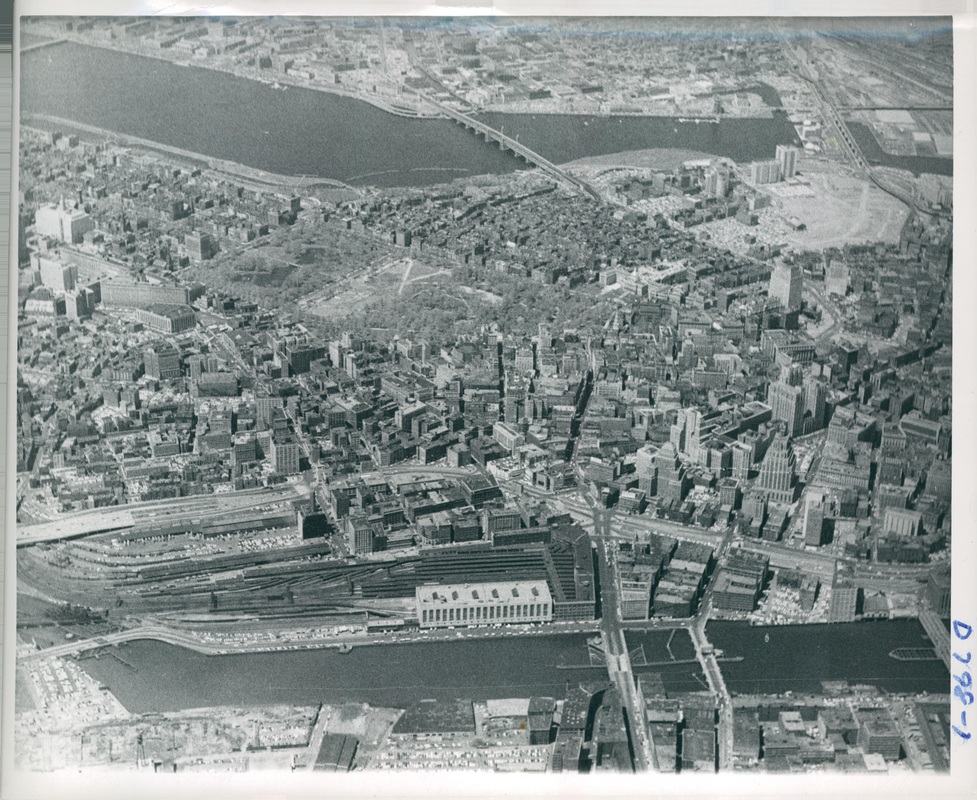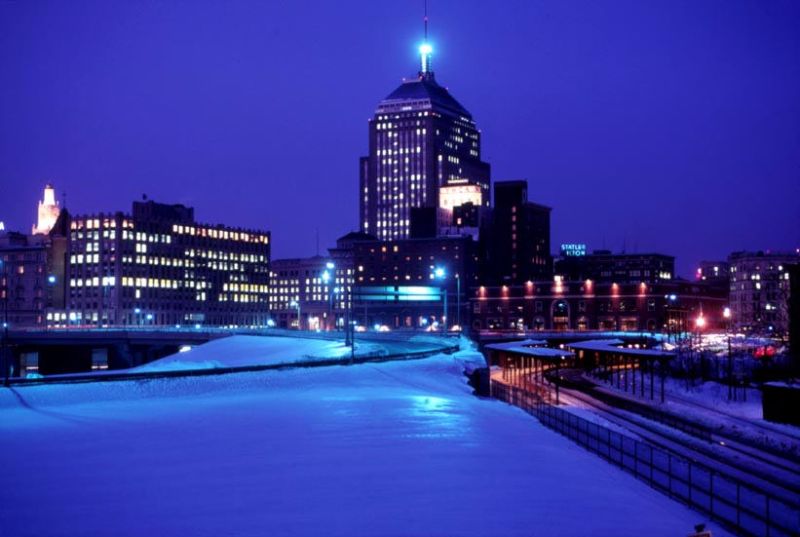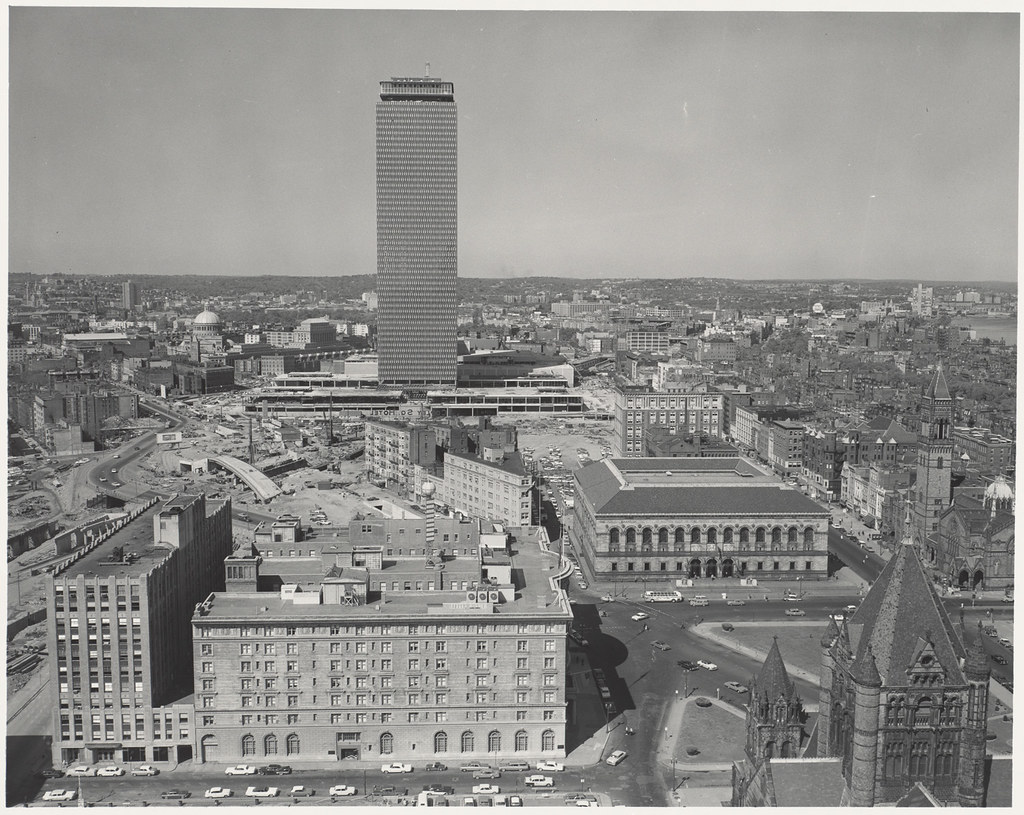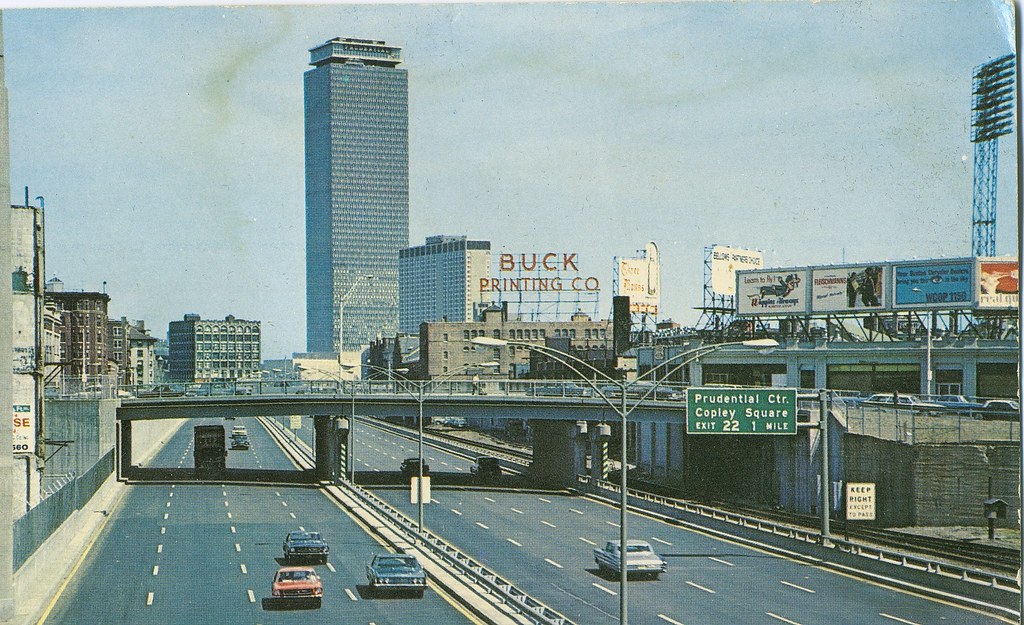You are using an out of date browser. It may not display this or other websites correctly.
You should upgrade or use an alternative browser.
You should upgrade or use an alternative browser.
Boston in the 1960's
- Thread starter JohnAKeith
- Start date
- Joined
- Sep 15, 2010
- Messages
- 8,894
- Reaction score
- 271
In fairness to him, it's more like "cue sanity in 3..."
Sorry if that came off as a knock on Matthew. It was not a knock. I respect him, as we always have nice civil discourse.
fattony
Senior Member
- Joined
- Jan 28, 2013
- Messages
- 2,099
- Reaction score
- 480
The Central Artery didn't 'cater to the car.' It catered to the need of the city to move people and freight in and out of the city. Unless you think cars drove themselves. Railroad lines didn't 'cater to the train,' did they?
I'll take this one.
It is that "in and out" that is/was the problem. At the time people wanted to live outside but still work inside. It was a mistake. We are righting the wrongs done. Many Americans still crave the space and isolation offered by suburban living and there is still a tremendous amount of auto infrastructure dedicated to moving them "in and out". But cities work better when they work for the people both working and living inside the city. Urban land use policy should cater to the people on the sidewalks rather than the people wrapped in steel on the freeway. The idea that we are all better off moving around in steel and glass bubbles, insulated from the world around us, is losing favor.
Cars and suburban, low density living/working are eminently compatible. Cars and dense urban living/working are not. The central artery catered to those people who dreamed of having a personal automobile link their isolated suburban home life with a vibrant urban playground. What happened was that the urban space lost its vibrancy. People understand better now just how much the space occupied by cars, both moving and parked, robs from the urban experience.
You hear people rail against large buildings and high density as being out of "human scale," but they miss what is really out of "human scale." Humans can interact with each other very well (better, even) in the presence of large buildings, but not in the presence of vast ramp systems and high speed killing machines.
JohnAKeith
Senior Member
- Joined
- Dec 24, 2008
- Messages
- 4,320
- Reaction score
- 63
Sorry if this is a repost but I had never seen it before.
Boston in 1964. LOTS of shots of buildings that no longer exist. Only problem is the video is made in a way that makes it a bit hard to watch. I loved it, though.
There's a million little treats including the Bowker Overpass under construction.
https://www.youtube.com/watch?v=GKu9Y51rjhw
Boston in 1964. LOTS of shots of buildings that no longer exist. Only problem is the video is made in a way that makes it a bit hard to watch. I loved it, though.
There's a million little treats including the Bowker Overpass under construction.
https://www.youtube.com/watch?v=GKu9Y51rjhw
bolehboleh
Active Member
- Joined
- Nov 28, 2011
- Messages
- 413
- Reaction score
- 27
Sorry if this is a repost but I had never seen it before.
Boston in 1964. LOTS of shots of buildings that no longer exist. Only problem is the video is made in a way that makes it a bit hard to watch. I loved it, though.
There's a million little treats including the Bowker Overpass under construction.
https://www.youtube.com/watch?v=GKu9Y51rjhw
I've seen this video several times, and to be honest, I'm not that impressed. Sure, I'd love to see more of the small businesses that existed then, but the city seems more urban and interesting now.
citylover94
Senior Member
- Joined
- Oct 27, 2012
- Messages
- 1,140
- Reaction score
- 58
The 1960s version is credited to none other than Kevin Lynch! Why am I not that surprised, he did all sorts of good stuff.
JohnAKeith
Senior Member
- Joined
- Dec 24, 2008
- Messages
- 4,320
- Reaction score
- 63
Found this sick 1960's aerial on flickr.
https://www.flickr.com/photos/75949131@N08/34598784466/sizes/o/
https://www.flickr.com/photos/75949131@N08/34598784466/sizes/o/
JumboBuc
Senior Member
- Joined
- Jun 26, 2013
- Messages
- 2,646
- Reaction score
- 1,515
Found this sick 1960's aerial on flickr.
https://www.flickr.com/photos/75949131@N08/34598784466/sizes/o/
The Fed building "was erected between December 1972 and November 1974" and it's under construction in that pic. The trees on the Common are also in full bloom, so I'm guessing spring or early summer of '74.
If you watch any https://duckduckgo.com/?q=modern+lovers&t=ffab&ia=videos, you some pretty good views. Try "Roadrunner".
there is a new thread over on ssp with lots of pics from the 50's, 60's, 70's. it's worth checking out
http://forum.skyscraperpage.com/showthread.php?t=229330
http://forum.skyscraperpage.com/showthread.php?t=229330&page=2
http://forum.skyscraperpage.com/showthread.php?t=229330
http://forum.skyscraperpage.com/showthread.php?t=229330&page=2
Charlie_mta
Senior Member
- Joined
- Jul 15, 2006
- Messages
- 4,316
- Reaction score
- 5,925
I was a teenager in the 1960's. I miss the urban grit of the vibrant working class city back then, but the nation, the city and the times were very different. Income inequality has increased greatly today, and much of Boston has become prettier. There are good and bad parts to that change, obviously.
atlantaden
Senior Member
- Joined
- May 31, 2006
- Messages
- 2,593
- Reaction score
- 2,681
The city was a wreak back then both economically (was in it's beginning of making it's great comeback), visually, walkability, just about everything. The harbor and the Charles were polluted, trash on the streets, neighborhoods were insular and tribal, suspicious of outsiders. Quincy Market stunk of decaying meat from the vendors housed there. No such thing as the Harborwalk or a million other things that make this town a place to hang out for days and days. Glad the 60's a far behind us!
statler
Senior Member
- Joined
- May 25, 2006
- Messages
- 7,926
- Reaction score
- 525
neighborhoods were insular and tribal, suspicious of outsiders.
Some things linger.
Beton Brut
Senior Member
- Joined
- May 25, 2006
- Messages
- 4,382
- Reaction score
- 335
Some things linger.
Indeed.
Currently revisiting this important book. I encourage others to do the same.
Charlie_mta
Senior Member
- Joined
- Jul 15, 2006
- Messages
- 4,316
- Reaction score
- 5,925
Living in North Cambridge in the 1960's was obviously different than South Boston. North Cambridge was an Irish Catholic walkable, safe and friendly neighborhood. The two Catholic churches were the anchors. I loved it there. I suppose it could be called "tribal" but it was great.
stick n move
Superstar
- Joined
- Oct 14, 2009
- Messages
- 11,026
- Reaction score
- 14,557
Charlie_mta
Senior Member
- Joined
- Jul 15, 2006
- Messages
- 4,316
- Reaction score
- 5,925
The photos of the West End totally leveled and destroyed are painful to me, really painful. I never lived there but I do remember seeing the old neighborhood when I would ride by as a child on the Green Line elevated. It's a loss that will never be replaced. The old West End could have developed into a fine neighborhood like the North End, but it wasn't given the time.









